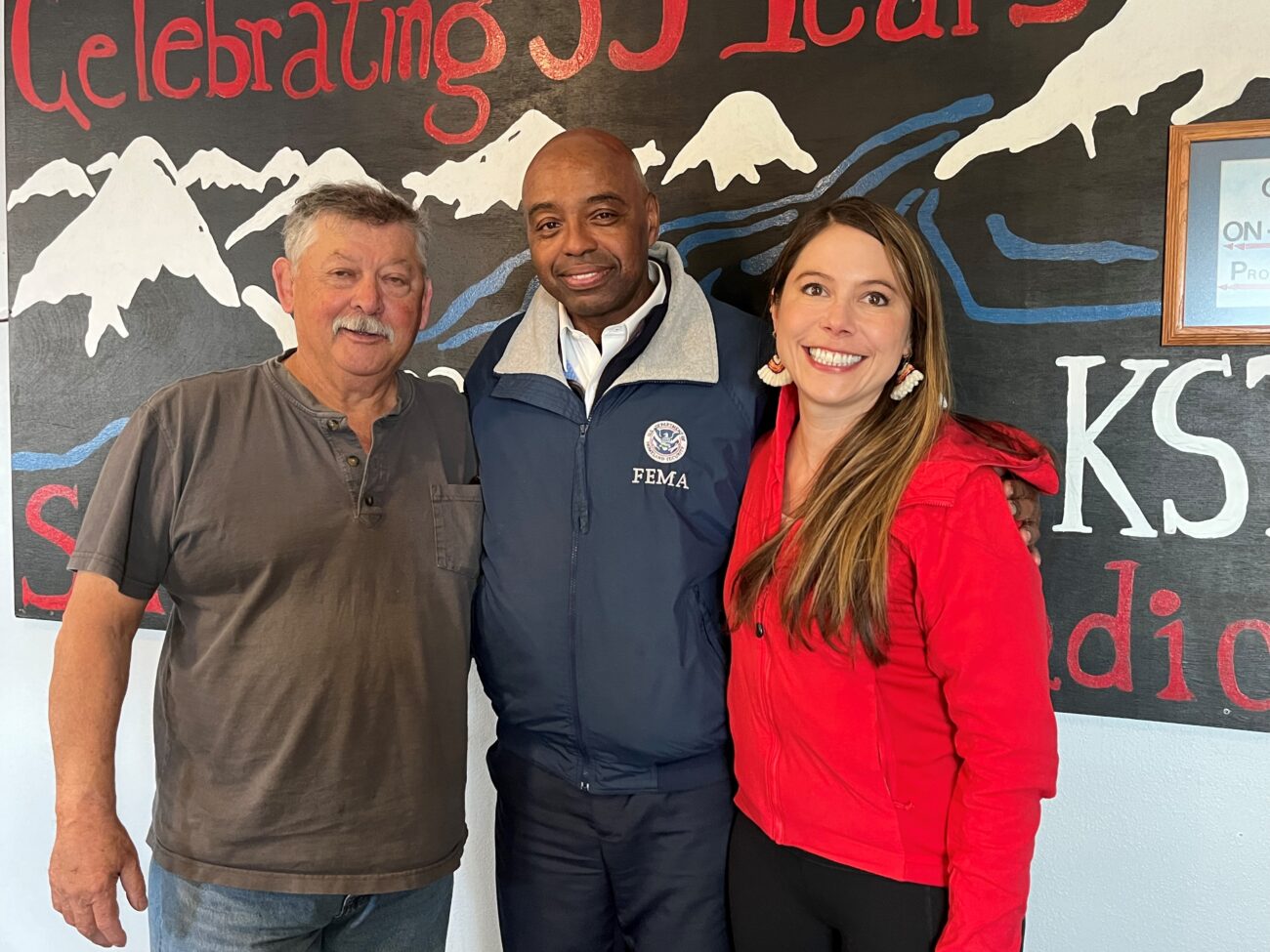
Willie Nunn, Federal Emergency Management Agency (FEMA) Region 10 administrator, visited Wrangell in late May. He wanted to be with the community in person. Specifically, he wanted to encourage a relationship with the local tribal government – the Wrangell Cooperative Association (WCA) – as they continue to work together.
“I believe presence is a mission for my role,” he said. “You can feel what goes on, you can feel the soul of a person, you can feel the soul of the landslide. We just visited the landslide to see where it crossed the road.”
Months after a landslide killed six people in Wrangell, the community is still going through the process of getting assistance from the federal and state governments. Nunn said he is impressed. He’s impressed with how the tribe sought the assistance and received a major federal disaster declaration from FEMA.
He said it’s the first time that he’s seen the State of Alaska, a tribal nation and FEMA work together over a disaster. He’s been with FEMA for 17 years.
“I have to say what has happened here so far is historic,” Nunn said. “Historic in the fact that WCA has reached out to the federal government and went through the process and received a major federal declaration for the landslide.”
Until 2013, tribal nations couldn’t come to the federal government to get a major declaration for help. The Sandy Recovery Improvement Act of 2013 allowed tribal governments to be included in FEMA assistance.
“I would not say our system is easy”
Nunn said that after the landslide, the regional tribal government, Central Council Tlingit and Haida Indian Tribes of Alaska, suggested Wrangell’s tribe contact FEMA. Tlingit and Haida had experience working with the federal agency before.
“I would not say our system is easy,” he said. “Our system is complex but they were willing applicants to make this happen.”
He said that WCA had a lot of work to do and FEMA walked them through the process.
“We couldn’t do it for them so they had to do all the heavy lifting themselves and they did it,” Nunn said. “At the end, they wrote a report to the President and sent it through and we reviewed it and made sure that we dot the i’s and cross the t’s.”
Another historic change
Wrangell’s tribe is working with all relevant agencies, including the State of Alaska. Together, they’re figuring out how to clean up the tidal zone that was severely impacted by the landslide. WCA’s Tribal Administrator Esther Aaltséen Reese said another historic change stemming from the slide was FEMA including traditional assistance foods.
“We explained to them the importance of our traditional subsistence foods and how they’re our connection to the land, they’re connection to our ancestors, our children and the generations that come after us,” she said. “That it truly is like a deep, powerful part of our culture.”
The federal assistance also included gear that is specific to Alaska for hunting – like fish wheels, four wheelers and rifles.
“Things that in the lower 48 you really wouldn’t think about, but to us are very important for us for our survival on the land,” Reese said.
“Healing can mean different things for different people”
Another need that the local tribe is working with FEMA on is an application for mental health assistance. That will be provided through the Substance Abuse and Mental Health Services Administration (SAMSHA). SAMSHA is an agency through the U.S. Department of Health and Human Services.
“Under that, we’re going to include a lot of mental health resources, through FEMA and SAMSHA. to be able to assist our citizens because this has been so traumatic for our community,” Reese said. “We’ve lost family members, loved ones, we are all connected in this community.”
Reese said that mental health for Alaska Native communities might look a little different than communities in the lower 48.
“Healing can mean different things for different people,” she said. “For some people that might be seeing a therapist, but for other people it might be doing our traditional arts, gathering our traditional subsistence foods, singing our songs, being on the land.”
She said the disaster declaration for WCA forges a path forward for other tribes when future disasters happen.
Reese said, “To make sure that path is a little easier for them and that there is even more assistance for our brothers and sisters across the state of Alaska just means the world to me to be involved in that.”
Reese said she’s grateful that FEMA has been listening to them as a tribal nation and their tribal citizens.











